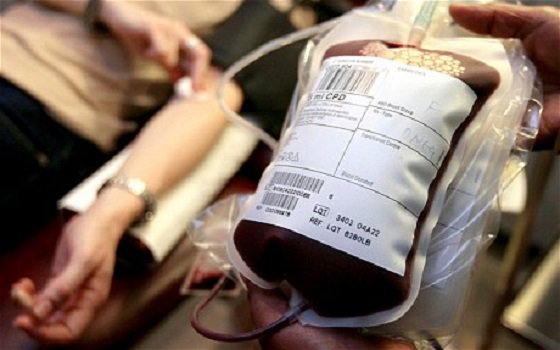Gay men ask how many heterosexual people have protected sex before donating blood
The BBC spoke to two gay men who donate blood outside the three month timeframe
By Steve Brown

Words: Steve Brown
Gay men have asked how many heterosexual people have protected sex before donating blood following urgent calls for more blood donors.
Currently in England, Wales and Scotland, men who have sex with men are only able to donate blood if they have been celibate for three months.
In Northern Ireland, they must be celibate for a year, a timeframe that was reduced in the rest of the UK.
“But now, the UK’s blood supplies have decreased and there is urgent call for more blood donors but sexually active men who sleep with men are still unable unless they remain celibate.”
According to the NHS Blood and Transplant organisation, the timeframe exists as while donations are screened there still could be a ‘period of time’ when an infection will not be detected.
However, on the Victoria Derbyshire programme today (June 18), two sexually active gay men – known as David and Ryan – said heterosexual blood donors can still carry a risk
While speaking on the show, Ryan – who promised to donate as much blood as he could to his mother shortly before she passed away – said: “How many heterosexual people have sex without contraceptive devices or condoms or anything? How much risk are they taking?
“I don’t think that who I choose to have sexual relations with, or fall in love with, should have any bearing on giving blood.”
David added how he practices safe sex and claims to be tested more frequently than heterosexual people, but the donating timeframe ban is still in place for him.
“No straight person I know goes and gets checked every six months,” he says.
Su Brailsford, a consultant in health protection at NHS Blood and Transplant, acknowledged that anyone can get a sexually transmitted disease or a blood-borne infection, but argued that some people have an ‘increased risk of exposure’.
She said: “At a population level, men who have sex with men have a higher risk. Using protection like a condoms or PrEP can reduce this risk but may not eliminate it.
“We have to consider not only the donor but also the potential risks of their partner.
“All donors have to complete the donor health check when they come to donate – so it’s not just men who have sex with men who we ask about what sort of sex they’ve been having.”
